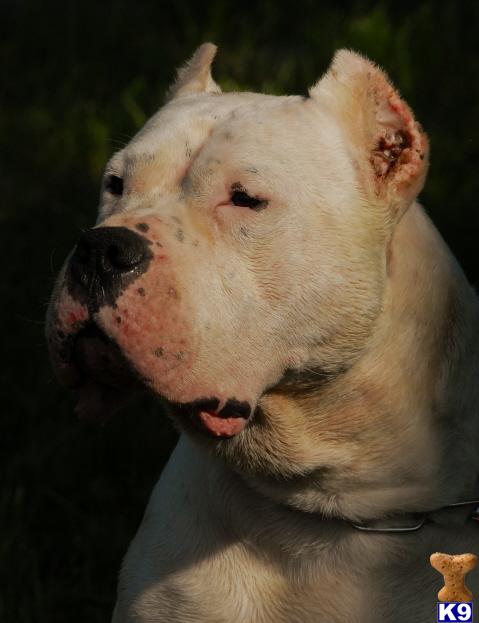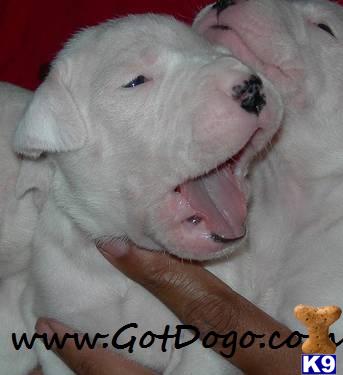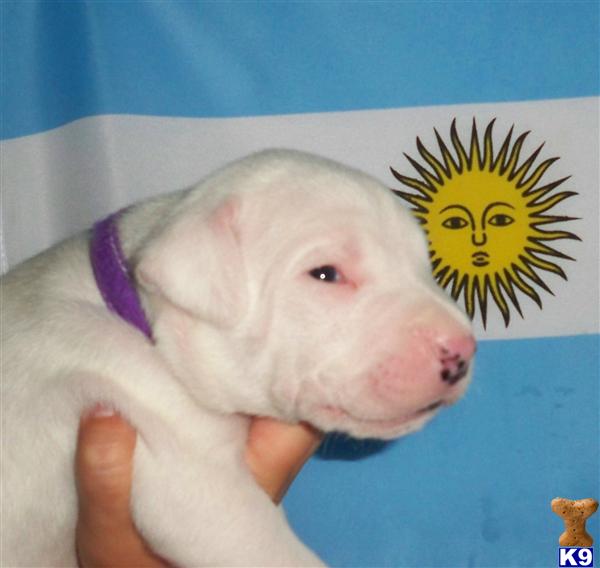Some jurisdictions have enacted breed-specific legislation in response to a number of well-publicized incidents involving pit bull-type dogs or other dog breeds commonly used in dog fighting, and some government organizations such as the United States Army and Marine Corps have taken administrative action as well. This legislation ranges from outright bans on the possession of these dogs to restrictions and conditions on ownership, and often establishes a legal presumption that these dogs are prima facie legally "dangerous" or "vicious." In response, some state-level governments in the United States have prohibited or restricted the ability of municipal governments within those states to enact breed-specific legislation.
The importation of the Dogo Argentino, Fila Brasileiro, Japanese tosa, American pit bull terrier or pit bull terrier, and Perro de Presa Canario or Presa Canario into Australia is absolutely prohibited.
Restricted dogs may not be sold, given away, or acquired, and must be spay/neutered. They must be muzzled when in public, wear a special red-and-yellow collar, and may only be handled by a competent adult over the age of 18. The dog must live a secure enclosure when at home, and the owner must post "Warning: Dangerous Dog" signs on their property. The owner must also register the dog with the local government and notify the government if the dog attacks a person or animal, cannot be found, dies, has moved out of the area, or is now living at a different location within the local government's jurisdiction.
All restricted breed dogs must be muzzled, leashed and controlled by an adult who is physically capable of handling the dog, in any environment except prescribed enclosures. Restricted breed dogs are also required to be sterilised unless there are extenuating circumstances relating to the animal's physical condition or medical treatment. Owners of these breeds are required to display of warning signs where these dogs are kept, meet stringent fencing requirements, notify the local government of changes in the dogs status (moved, died, etc..), and ensure their dogs wear dangerous dog collars.
The Canadian federal government does not regulate pit bull-type dogs, but one provincial government and some municipal governments in Canada have enacted breed-specific legislation banning or restricting pit bull-type dogs. The following table discusses a sampling of the restrictions in force.
Pit bulls are "grandfathered" if they were owned by an Ontario resident on August 29, 2005, or born in Ontario within 90 days after August 29, 2005. These dogs are subject to strict regulation and control, including the following:
A document purporting to be signed by a member of the College of Veterinarians of Ontario stating that a dog is a pit bull within the meaning of this Act is receivable in evidence in a prosecution for an offence under this Act as proof, in the absence of evidence to the contrary, that the dog is a pit bull for the purposes of this Act, without proof of the signature and without proof that the signatory is a member of the College. ...Any Pit Bull dog within the City of Winnipeg is and shall be conclusively deemed a dangerous dog. ...No person shall keep or harbour any Pit Bull dog regardless of age on or after June 1, 1990, except where the owner has a valid dangerous dog licence for that dog which has been issued prior to that date. In Cochrane v. Ontario (Attorney General), 2007 CanLII 9231 (ON S.C.), Ms. Catherine Cochrane sued the Province of Ontario to prevent it from enforcing the Dog Owner's Liability Act (DOLA) ban on pit bull-type dogs, arguing that the law was unconstitutionally broad because the ban was grossly disproportionate to the risk pit bulls pose to public safety, and that the law was unconstitutionally vague because failed to provide an intelligible definition of pit bulls. She also argued that a provision allowing the Crown to introduce as evidence a veterinarian's certificate certifying that the dog is a pit bull violates the right to a fair trial and the presumption of innocence. The presiding judge ruled that the DOLA was not overbroad because,
The importation of the Dogo Argentino, Fila Brasileiro, Japanese tosa, American pit bull terrier or pit bull terrier, and Perro de Presa Canario or Presa Canario into Australia is absolutely prohibited.
Restricted dogs may not be sold, given away, or acquired, and must be spay/neutered. They must be muzzled when in public, wear a special red-and-yellow collar, and may only be handled by a competent adult over the age of 18. The dog must live a secure enclosure when at home, and the owner must post "Warning: Dangerous Dog" signs on their property. The owner must also register the dog with the local government and notify the government if the dog attacks a person or animal, cannot be found, dies, has moved out of the area, or is now living at a different location within the local government's jurisdiction.
 Dogo Argentino Pups for sale - |  Dogo argentino pup for sale |  UKC/NKC Dogo Argentino Puppies |  Doberman, Dogo Argentino, |  Dogo Argentino Pups for sale - |
 Dogo argentino pup for sale |  Dogo Argentino Puppies |  Dogo Argentino Puppies |  Dogo Argentino pups - Miami |  Dogo Argentino Pups for sale - |
Pit bulls are "grandfathered" if they were owned by an Ontario resident on August 29, 2005, or born in Ontario within 90 days after August 29, 2005. These dogs are subject to strict regulation and control, including the following:
UKC/NKC Dogo Argentino Puppies |  nonimitative neglectfully the dogo argentino puppies for sale in miami. | Dogo Argentino pups - Miami |  UKC/NKC Dogo Argentino Puppies |  Dogo Argentino Pups for sale |
 Dogo Argentino Puppy \x26amp; Dogo |  Dogo Argentino puppies |  Dogo Argentino Pup For Sale. |  of Dogo Argentino puppy |  Catalina Robayo Vargas: |
No comments:
Post a Comment